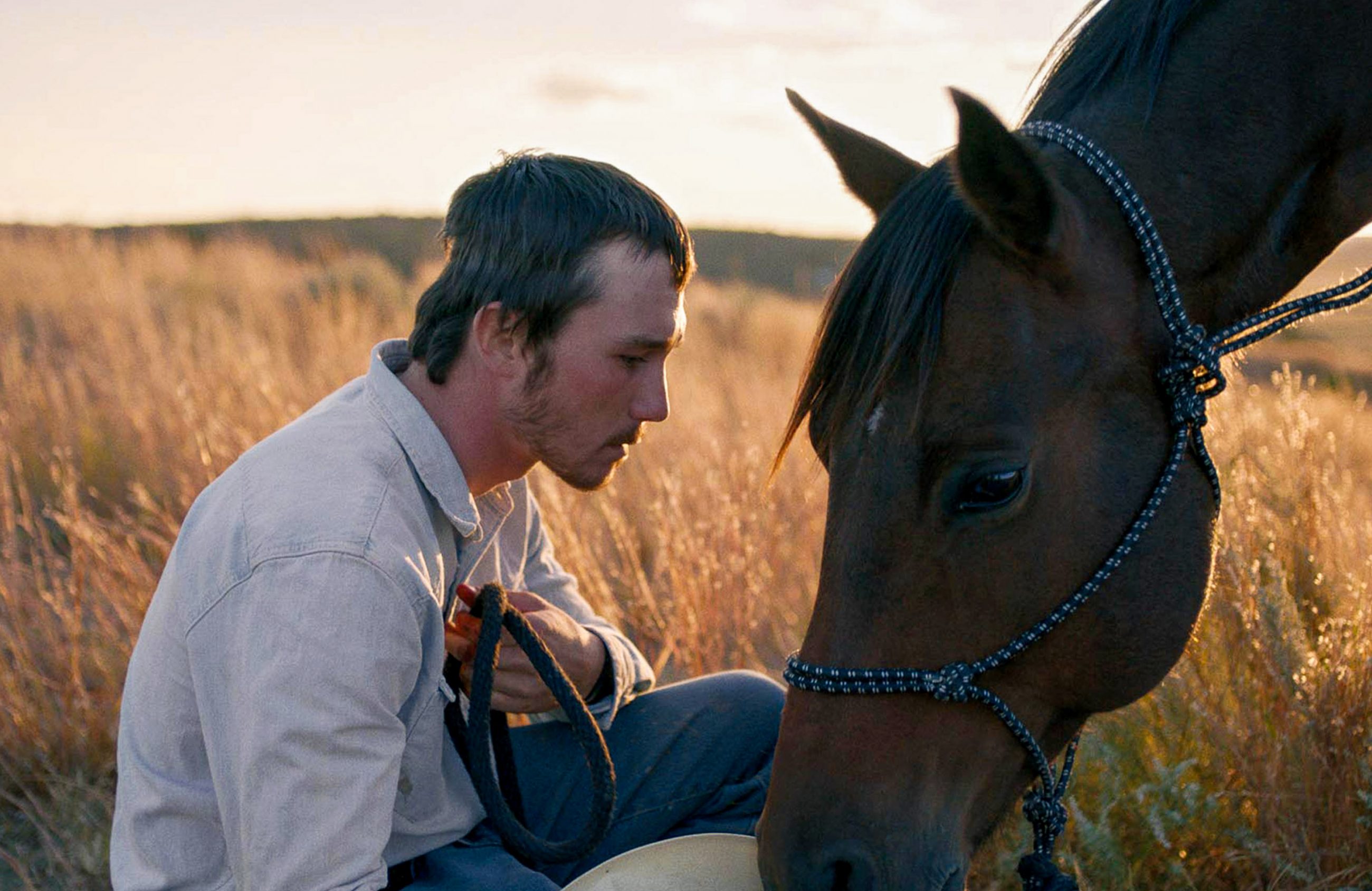Director Chloé Zhao’s The Rider is unlike any American film I’ve seen. Its closest compatriot might be Gus Van Sant’s My Own Private Idaho (1991), another movie that employed an almost documentary approach to capture the lives of a subculture of poor, disaffected young men striving for a tattered dignity on the lonesome outskirts of the American Dream.
More than that, though, The Rider has the look and feel and minor-keyed melancholy of a Townes Van Zandt song made flesh — something flinty and aggrieved, bitten by the clenched pride and taciturn sadness that stands like a talisman against the devouring immensity of the American West.
Beautifully filmed in the Badlands of South Dakota, the movie tells the story of Brady Blackburn (Brady Jandreau), a young rodeo rider recovering from a traumatic head injury he received after being thrown from a bronco. Brady’s father, Wayne (Tim Jandreau), is a drunk and a gambler, leaving Brady with undue responsibility for raising his autistic sister Lilly (Lilly Jandreau). Theirs is a motherless world, hard-bitten and unforgiving.
Catastrophically robbed of his identity as a hotshot rider, Brady finds himself in limbo. The seizures that freeze his hand into a tight knot are emblematic of an even more devastating paralysis: Surrounded by poverty and the diminished life of a modern cowboy, Brady struggles to re-establish himself in the midst of chaos. While his father pelts him with words of defeat, his friends, with the best of intentions, tell him to buck up. A cowboy never quits.
Brady gets a job stocking shelves at a local convenience store — nothing to scoff at, but such an indignity for a man accustomed to breaking horses. He contemplates pawning his saddle. He loses his horse.
But the film doesn’t stop at this simple dualism of tragedy and triumph, defeat and overcoming. In fact, Zhao, who also wrote the screenplay, complicates the narrative at every turn by revealing the subtle forces that push and pull at Brady’s awareness of himself — not just as a busted cowboy but as a brother, a son, a friend, a man. What emerges is a compelling story about masculinity under siege, told in a style that is the opposite of dogmatic, with a poet’s eye for human frailty and longing.
The Rider, in other words — and unlike so many tendentious films before it — has no particular ax to grind. It isn’t “about” male identity or the deracinated hinterlands of the American West or the cowboy ethos. It is refreshingly inductive and depoliticized, in such a way that it is able to say more about class and tradition and gender and America than a thousand other films that wear their agenda on their cinematic sleeves.
Zhao achieves this stark naturalism through a series of unusual choices, the foremost among them being her use of non-actors. Brady Jandreau is in fact a real cowboy, a horse trainer the director met while working on a previous film. She wrote the movie for him, and she went ahead and included his family and friends in the film. In this sense, the viewer — like the director — is immersed in a voyage of discovery. Preconceived notions are of no help here.
The vulnerability and, at times, discomfort of watching non-professionals act on screen brings a disarming immediacy to the movie; there is a sense of witnessing something raw and real that is uncommonly compelling. This is especially true when Brady visits Lane Scott, a real-life bronco rider who was paralyzed after a car accident. Their scenes together in the hospital are painful and tender in a way no fictionalized portrayal could capture. Sadness and hope are rarely this unadorned.
Similarly, the long, gorgeous scenes of Brady breaking horses do more than grant the film authenticity: They are authenticity itself, removing the scrim of artifice that usually protects and comforts an audience like a seatbelt on a rollercoaster. Zhao’s technique is itself a suspension of disbelief, and she plugs you in directly to the lives on screen, raw nerves and broken hearts and all.
The result is a film that defies all expectations. And it does so by presenting life as life, minus the neat and tidy narrative arcs that Hollywood thrives on. Forget about the ersatz triumphalism of Rocky, because Brady’s story isn’t about winning or losing. It’s about survival, and honesty, and family, and the hard choices we all make just to get through the day. (Bijou Art Cinemas)
